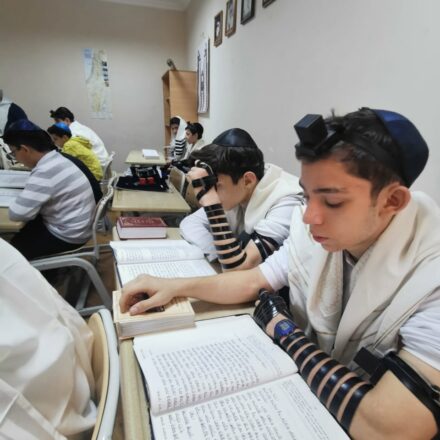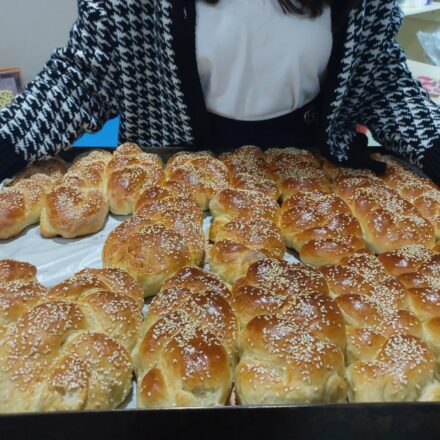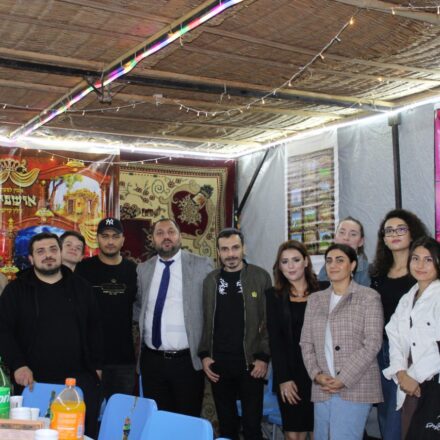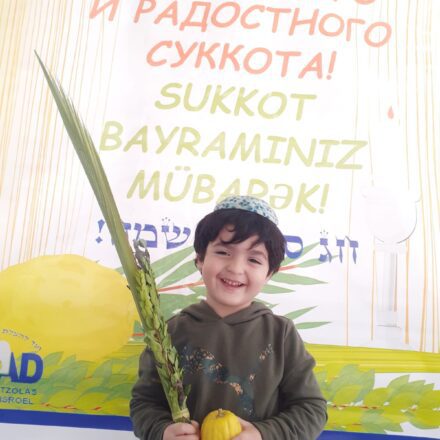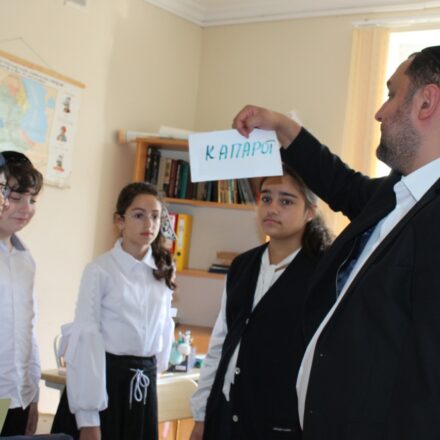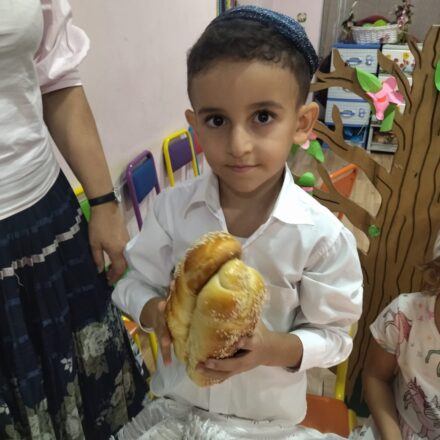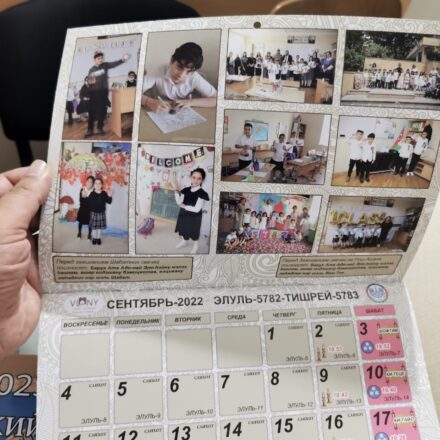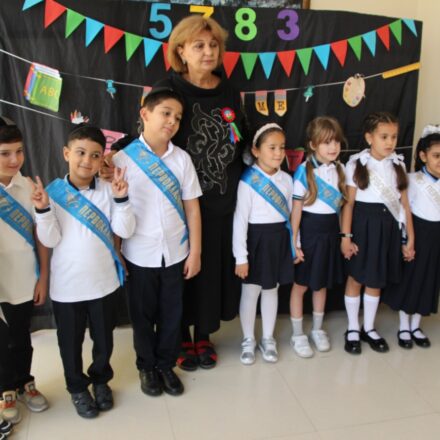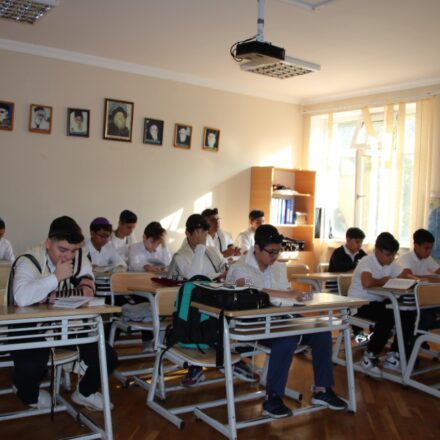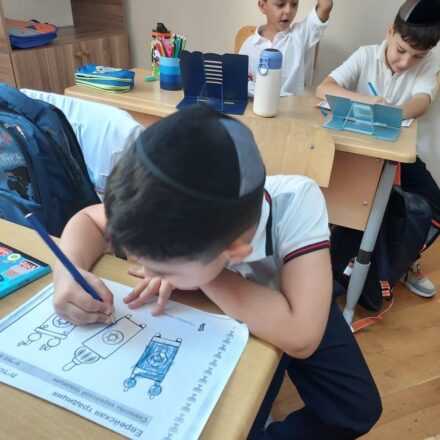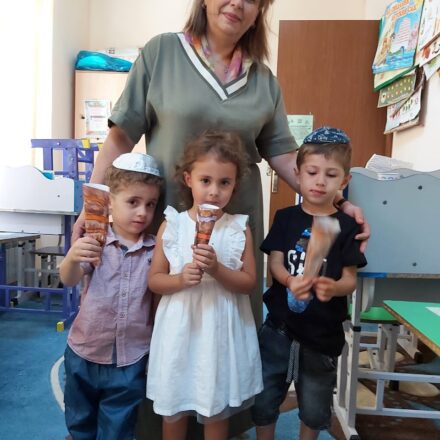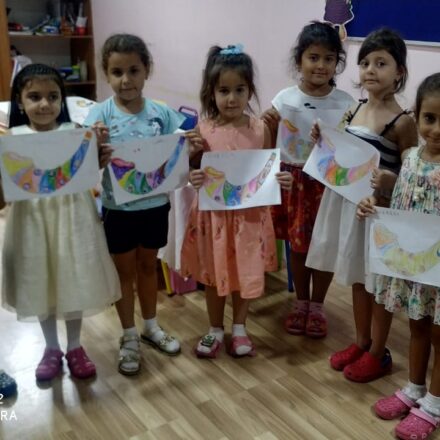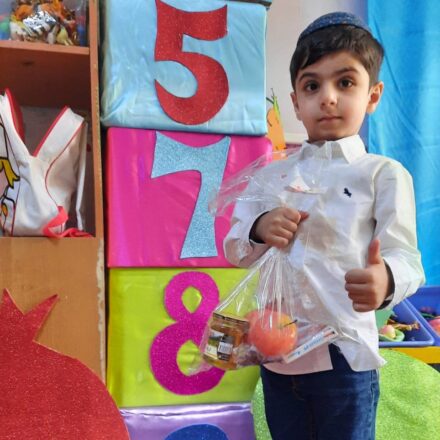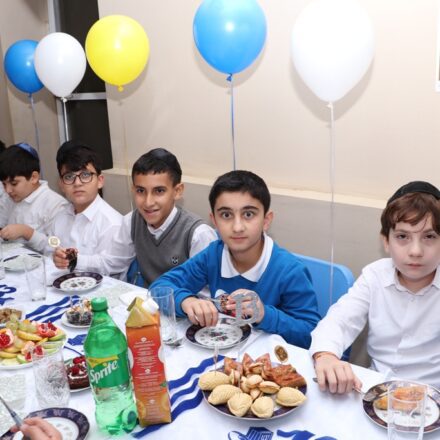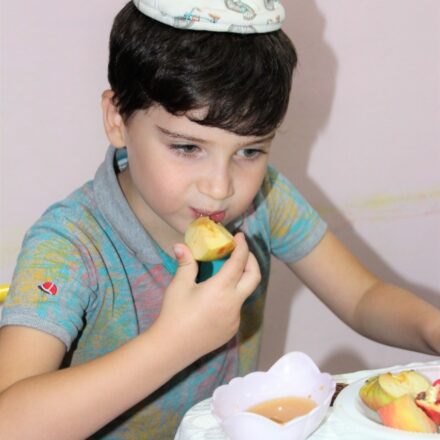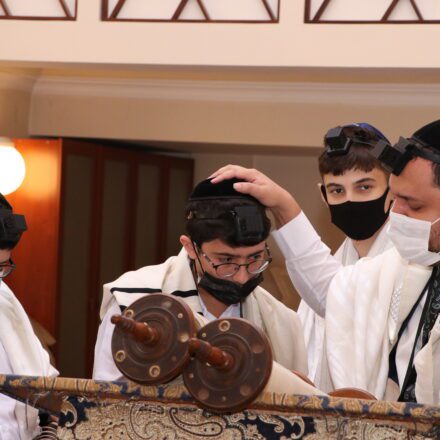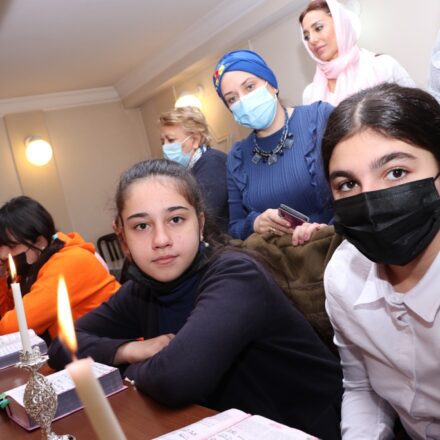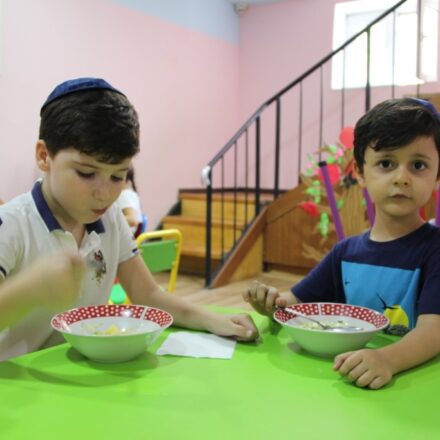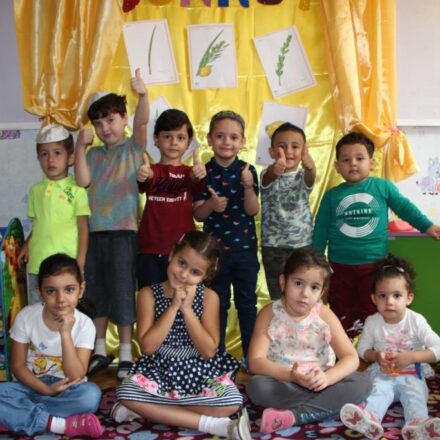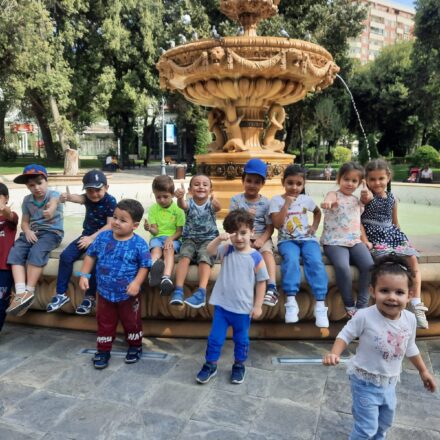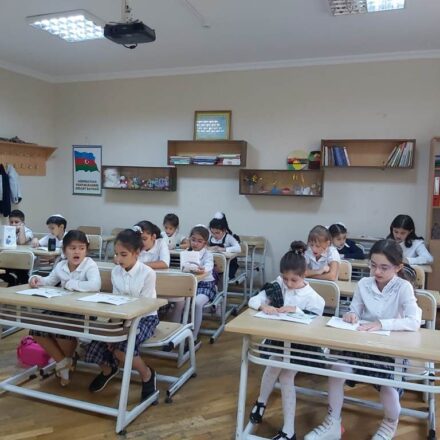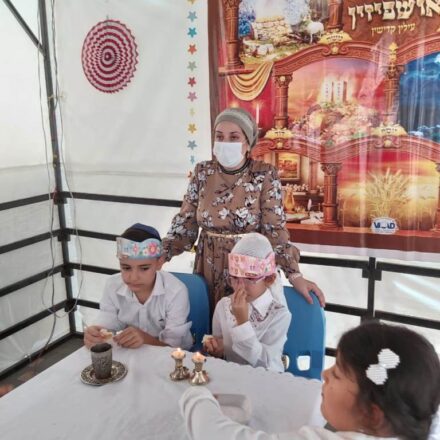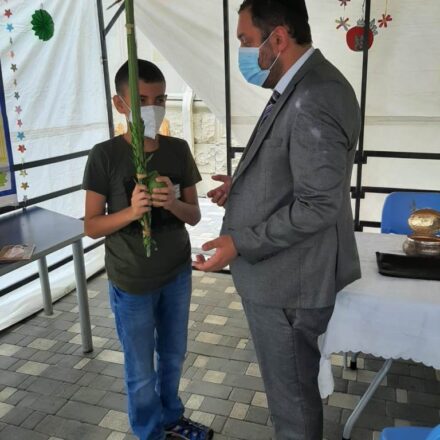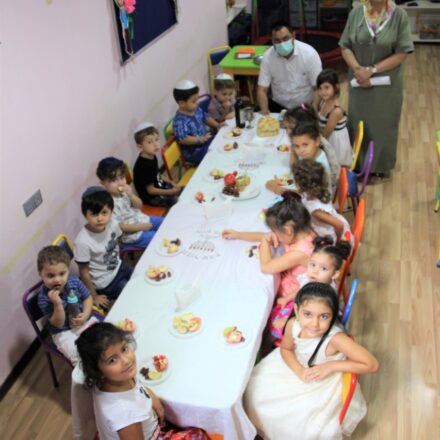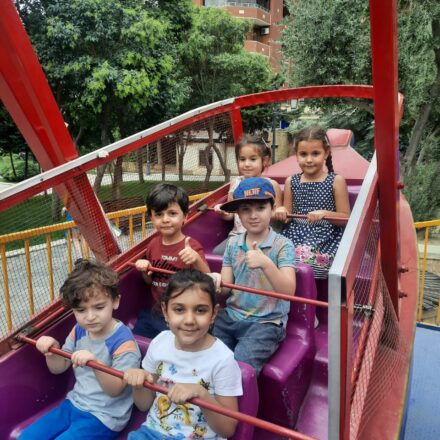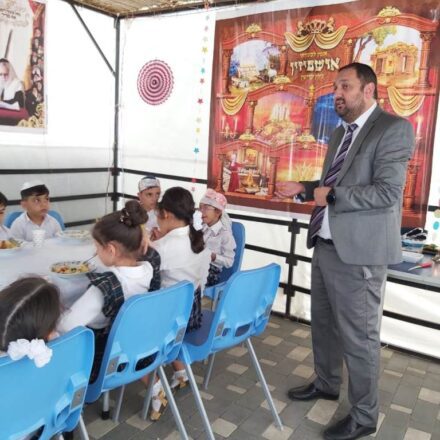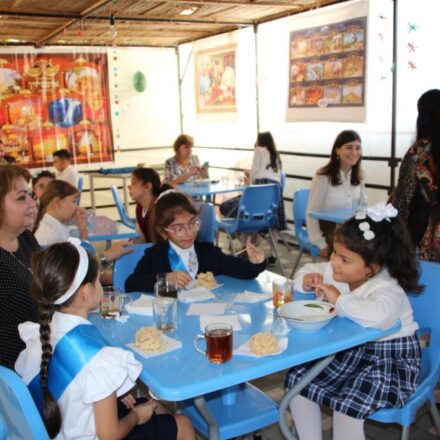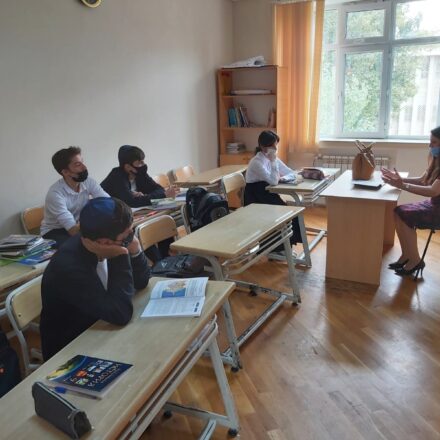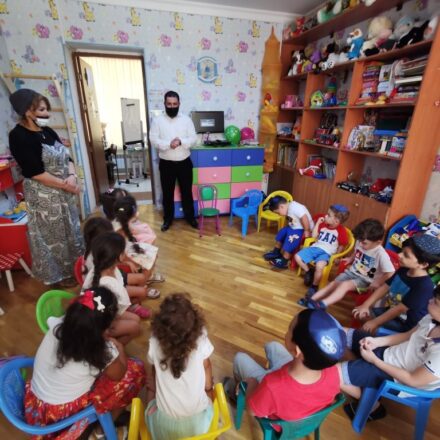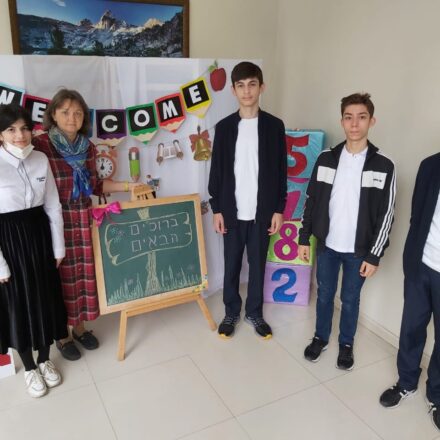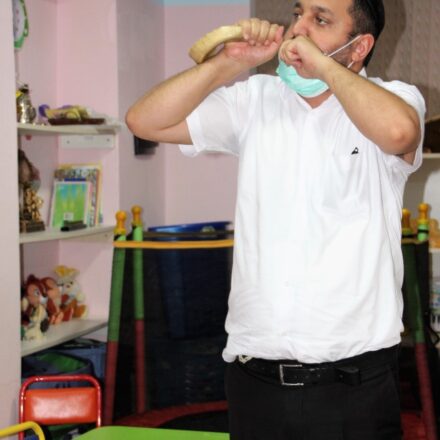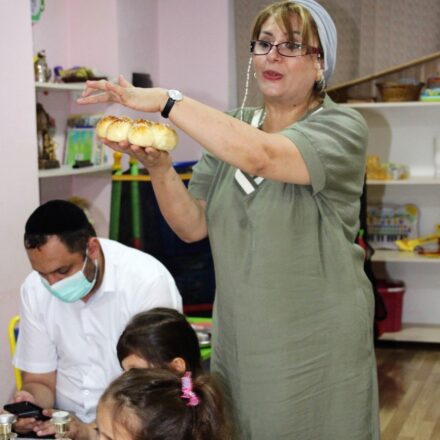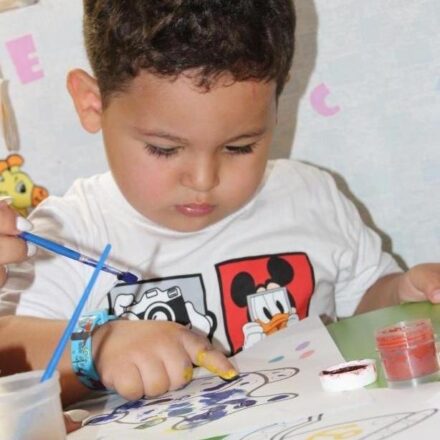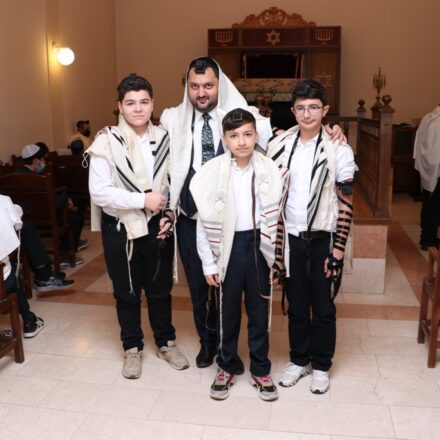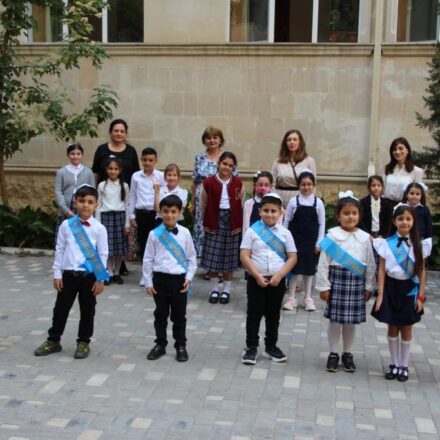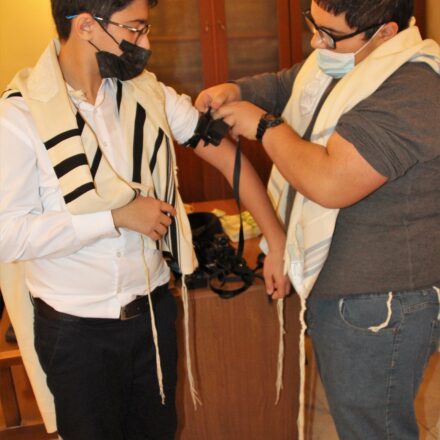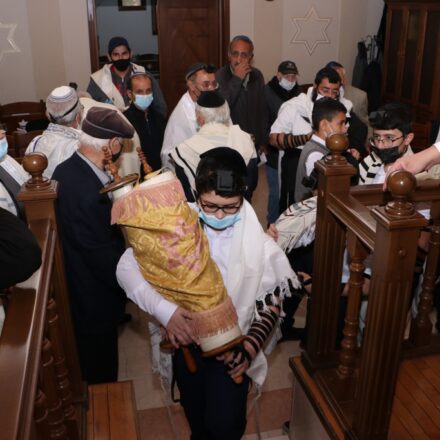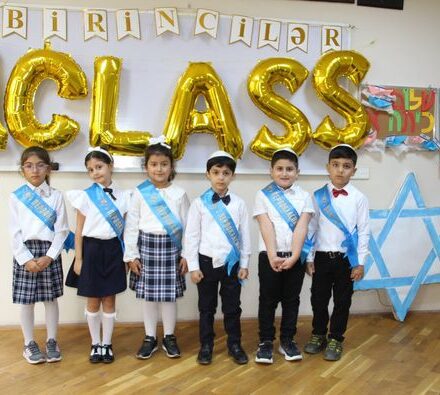BAKU, AZERBAIJAN
OUR MOSDOS IN BAKU, AZERBAIJAN
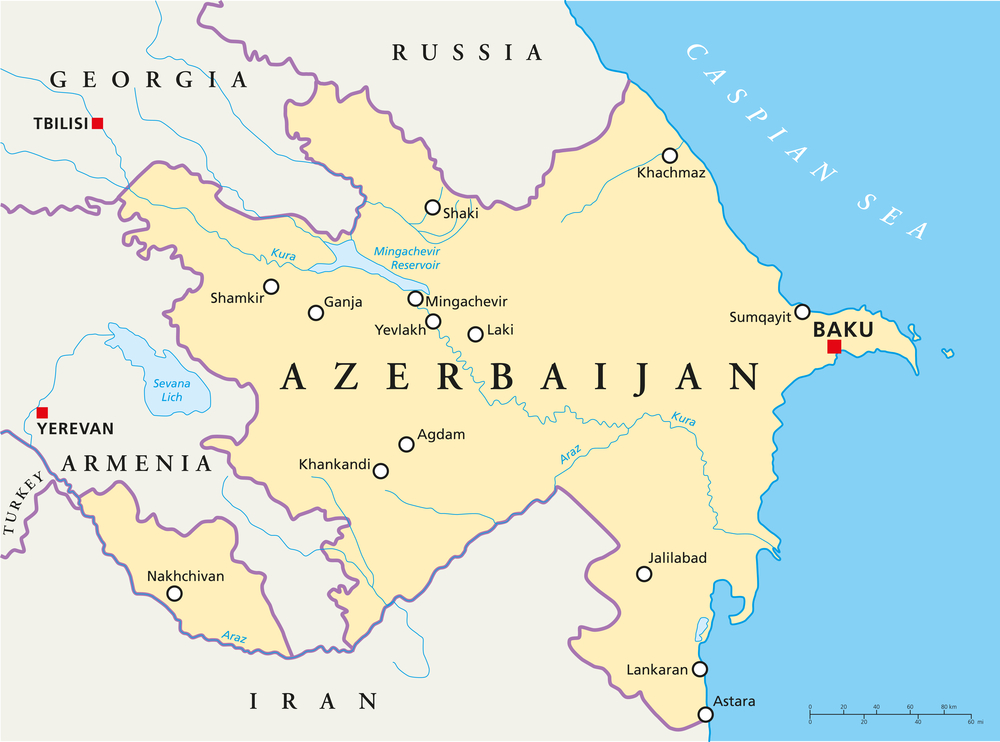 In 1991, The Vaad became involved in Baku through a great act of Hashgocho Protis. While, Rabbi Mordechai Neustadt Zt”l and Ariel Levine were passing through Baku (a large city) in route to Kuba. They were approached by a few old men who were concerned that after they die their children wouldn’t know how to say Kadish for them. Although there were many Jews in Baku, nobody knew anything about being a Jew. They wanted the Vaad to send them a teacher to learn with them.
Today, the Vaad boasts a boys and girl’s full day “day school”, a Bais Yaakov girl’s program. A mikvah built by the Vaad has just been rebuilt and refurbished. The community men and women also participate in learning groups.
Rabbi Zamir Isayev directs the Vaad’s activities in Baku. Being natives of Azerbaijan makes them uniquely qualified for this position. They are bringing renewed energy and even higher standards of learning to the Yeshiva.
In 1991, The Vaad became involved in Baku through a great act of Hashgocho Protis. While, Rabbi Mordechai Neustadt Zt”l and Ariel Levine were passing through Baku (a large city) in route to Kuba. They were approached by a few old men who were concerned that after they die their children wouldn’t know how to say Kadish for them. Although there were many Jews in Baku, nobody knew anything about being a Jew. They wanted the Vaad to send them a teacher to learn with them.
Today, the Vaad boasts a boys and girl’s full day “day school”, a Bais Yaakov girl’s program. A mikvah built by the Vaad has just been rebuilt and refurbished. The community men and women also participate in learning groups.
Rabbi Zamir Isayev directs the Vaad’s activities in Baku. Being natives of Azerbaijan makes them uniquely qualified for this position. They are bringing renewed energy and even higher standards of learning to the Yeshiva. New Beys Din
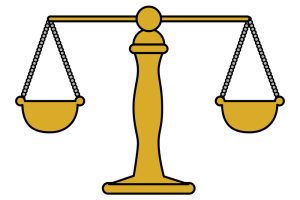
New and the only Beys Din in Region was opened in the Baku community under management on av beys din of Austria and Chechia ha gaon Rabbi Yaakov Hotoveli, and rabbi Zamir Isayev ( the Beys din is fully recognized by the head Rabbinate of Israe
The Jewish School
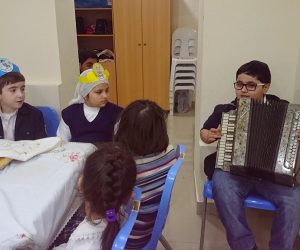
IN 1995, The Vaad founded the first Jewish School in Baku since the start of the Soviet Union. Our school is located as a separate part of a governmental local school #46, and it functions as part of it for Jewish children.
There are close to a hundred students who attend this school from 1st grade until 11th grade. Transportation to and from the school is provided, in addition to morning and noon meals, we also organize annual summer camps. General studies (mathematics, science, etc.) are taught by local teachers who work for the Azerbaijani ministry of education. The Hebrew language and Jewish traditions are taught by local Jewish teachers and teachers who were sent from Israel (Shlichim).
Kindergarten
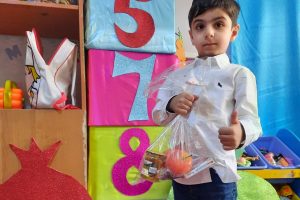
The kindergarten operates 5 days a week excluding Shabbos and Sundays. The daily schedule is from 8:00am until 5:00pm. The study plan is as follows; the Hebrew language, Ethics, the English language, as well as organized trips. Our goal is to bring children and their families closer to Jewish life and its traditions, and to bring more Jewish children into our school.
Shabbatonim
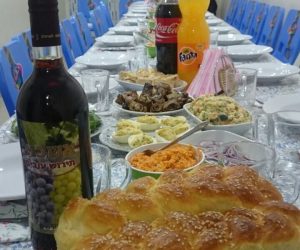
This project is for our school students (boys and girls) who live far from synagogues, as well as for those that cannot observer Shabbos at home. More than 20 students stay in a nearby hotel, every Shabbos.
We book about 6 rooms, boys and girls stay on separate floors. Each group has its special Mashgiach and Mashgicha. The hotel is situated close to school and to our Synagogue. The students celebrate Shabbos with our Rabbis, davening the Tefillos, in Synagogue together, and having all the meals in the school’s Dining room. For most students this is the only way they can experience a truly observant and spiritual Shabbos. Through this project tens of our students became Shomer Shabbos.
Bais Yaakov
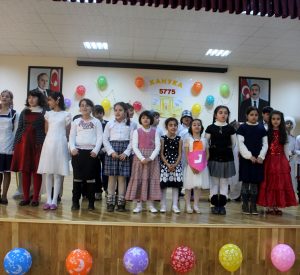
This project is for girls who study at the Jewish school currently. The number of participants is 17, from 7th thru 11th grade. It is held three times a week between 4:00pm – 6:00pm. The participants are divided in to two classes for different ages. This project is organized by teachers (women) from Israel in their apartments which they are residing in.
The lesson plan is as follows, Ethics, history, the Hebrew language, Jewish cuisine, as well as games involving logic, and holiday traditions. The goal of this project is to bring the students and their families closer to the Jewish life style and its traditions; furthermore, to expand their knowledge of day to day Jewish life and its traditions.
Sunday School
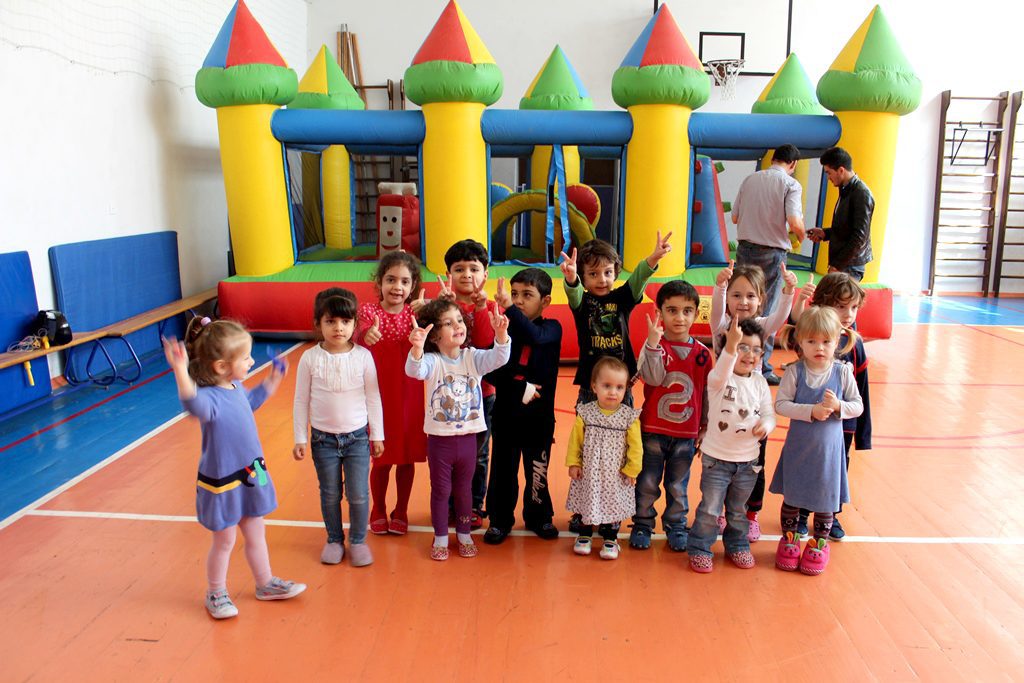
Every Sunday in the yeshiva there are several activities and lessons that take place. At the moment we have 25 students attending this Sunday school from 5th thru 11th grade. They are divided into two classes. Most of our students who attend this Sunday school are from the Jewish school. We currently teach one hour of Jewish history and Jewish ethics, one hour of Hebrew, computer studies, the English language, mathematics, and art for one hour. In addition, there are other activities taking place such as games (chess, checkers etc.) awards are given out, and organized trips are planned.
The goal of this project is to help students with their homework; not only related to Jewish studies but also homework related to general studies for example mathematics. In addition, it provides a safe and healthy social environment outside the school. There are also a number of children in our congregation who do not attend our school, but do attend our Sunday school. Our goal is to give them basic knowledge about Judaism and Jewish traditions.
Jewish Women's Club
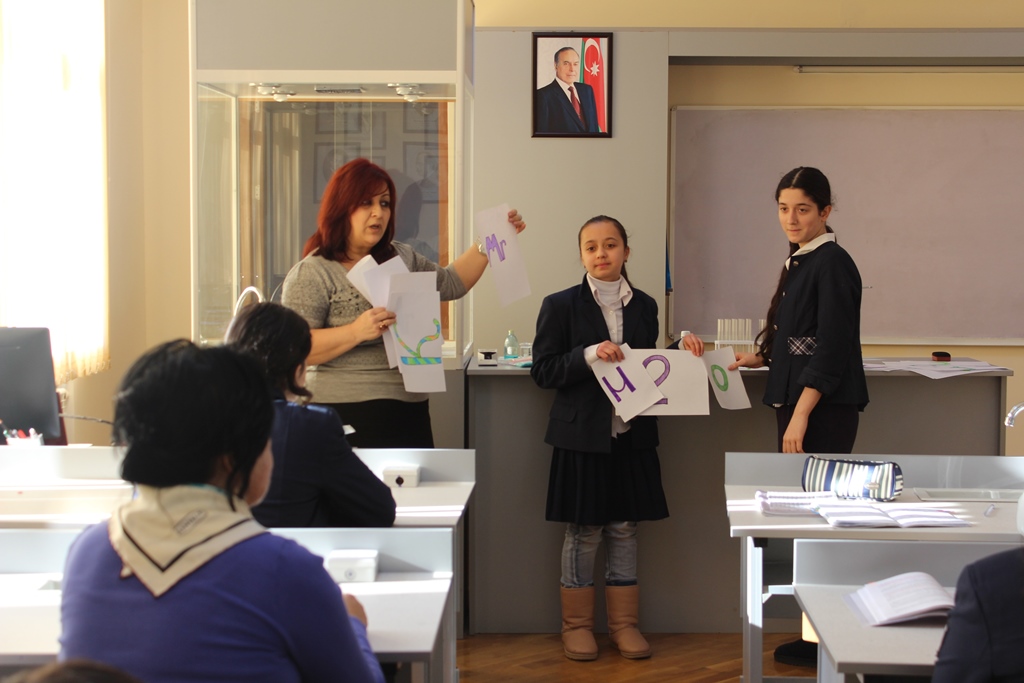
Every Sunday 16 women from our congregation meet in the yeshiva building. In this club the participants organize several lectures related to Judaism and the typical Jewish home. These lectures are two hours long. They also have additional topics which they discuss mainly having to do with subjects that interest women, such as cosmetology, psychology, Jewish cuisine etc.
Every Rosh Chodesh women (most of whom are mothers of the children who attend our school) gather in the yeshiva building and organize a party, which includes lectures and different activities for two hours. The lectures that they carry out are related to Rosh Chodesh, such as a lecture about the essence of the Hebrew months, and the typical Jewish home. In addition, they carry out different activities such as songs, karaoke, games, and giving out awards.
The goal of these programs are to bring Jewish lifestyle to families through women, strengthening and keeping family values and keeping kosher.
Evening Kollel
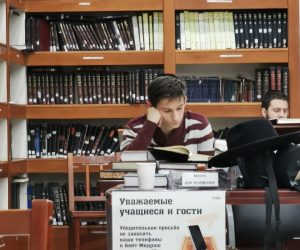
The number of students who participate in evening Kollel are 19 men ages 17 until 45.
Evening Kollel operates from 6:00pm until 8:00pm. Lectures are given by our teachers.
The students are divided into different groups according their level of knowledge and age.

